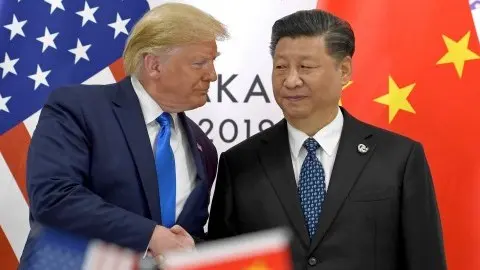UK: Christmas cancelled?
Concerns are growing that a new UK prime minister could pursue a ‘no deal’ Brexit, although we still think parliament would force a general election if there were no alternative way to stop it. All of this uncertainty is continuing to weigh on growth and a Bank of England rate hike this year looks increasingly unlikely
A general election is getting more likely
Former foreign secretary Boris Johnson remains the odds-on favourite to become the next UK prime minister – and since the comment in an interview that the 31 October Brexit deadline is “do or die”, markets have become a little more nervous about the UK outlook.
But how likely is ‘no deal’ in reality? We took a closer look in last month’s update, but to recap, we still think the probability of a ‘no deal’ exit in October sits around 20%. Parliament remains heavily against it, and while lawmakers may lack the legislative tools to stop it, MPs could use a vote of no confidence to force a general election instead. For this to succeed, a majority of MPs in the House of Commons would need to back it.
We still think the probability of a ‘no deal’ exit in October sits around 20%
While it may sound like a tough sell for the Conservatives to effectively vote themselves out of government, it wouldn’t take many MPs to do so. If the Conservatives lose a by-election in Wales later this month, their working majority within the House of Commons would fall to just two.
In terms of timing though, it’s hard to see a no-confidence vote being successful unless a ‘no deal’ exit looks completely unavoidable. Therefore, if an election is to happen, it’s unlikely to be triggered until fairly late in the day. Taking into account the minimum timings to hold an election suggests the earliest it could realistically happen is just before Christmas.
Scenarios for Brexit under PM Boris Johnson
All of this is causing problems for manufacturers
In the meantime, all of this uncertainty is taking its toll on the economy. Second quarter growth looks set to come in flat, or possibly even negative. Much of this has to do with manufacturing, which saw production fall by a whopping 3.9% in April. Admittedly some of this is down to various car manufacturers bringing forward their annual re-tooling shutdown to the start of April. But the much bigger story is that new orders have slowed sharply following the stockpiling frenzy that took place ahead of the original March Brexit deadline.
Second quarter growth looks set to come in flat, or possibly even negative
These firms now face a tricky decision. Given the cost of holding this extra stock – both in terms of storage and working capital – many will choose to unwind some of this inventory and try and rebuild it ahead of the new October deadline.
However, this is awkward timing for many firms, given that Christmas-driven demand means warehousing space is already very constrained. According to the UK Warehousing Association, the inner-M25 (London) area has a vacancy rate of just 2.2%. For many retailers, the price of preparing for ‘no deal’ is being unprepared for the key Christmas trading period.
Improving consumer-facing services haven’t fully offset weakness elsewhere

We expect the Bank of England to keep rates on hold this year
Things don’t look much better in the much-larger service sector, where output has stagnated through the second quarter. While consumer-facing services had been performing a little better – offsetting weakness in some other services industries - the second quarter has been a tough one for retailers. Despite an improvement in real wage growth, confidence remains depressed and this appears to be weighing on bigger-ticket purchases.
We disagree with the market’s assessment that there is a 45% chance of a rate cut this year
Throw in the potential for a further escalation in global trade tensions, and all of this means it’s hard to see the Bank of England increasing interest rates this year. That said, we disagree with the market’s assessment that there is a 45% chance of a rate cut this year. While recent BoE commentary has become more cautious, recent rhetoric also hints that the Bank would still prefer to tighten policy assuming Brexit uncertainty eases.
Download
Download article
5 July 2019
July Economic Update: The Art of the Deal This bundle contains 8 articlesThis publication has been prepared by ING solely for information purposes irrespective of a particular user's means, financial situation or investment objectives. The information does not constitute investment recommendation, and nor is it investment, legal or tax advice or an offer or solicitation to purchase or sell any financial instrument. Read more
